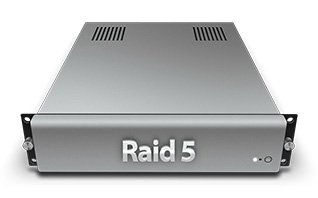Professional RAID 0 Data Recovery Services:
RAID 0 (Striping) is a storage configuration designed for performance, combining multiple drives into a single array to increase data read and write speeds. However, unlike other RAID levels, RAID 0 lacks redundancy, meaning that if even one drive fails, data loss is likely across the entire array. This guide covers professional RAID 0 data recovery services, including common failure scenarios, and the recovery process. Our RAID 0 data recovery services specialise in retrieving data from RAID 0 arrays that have experienced drive failure, controller issues, or logical corruption. Because RAID 0 arrays lack redundancy, data recovery from these systems requires advanced expertise and specialised tools to reconstruct data from partial information. Our Professional Forensic Raid Engineers handle RAID 0 recovery with precision and secure processes to maximize data recovery potential.
Introduction to RAID 0 Data Recovery
RAID 0, or striping, splits data evenly across two or more drives without storing parity data. While this configuration increases speed, it also increases risk; if one drive fails, the entire array is compromised, making data recovery challenging. Our Professional RAID 0 data recovery services use advanced techniques to reconstruct lost data, especially in complex scenarios where multiple drives are involved.
How RAID 0 Works
RAID 0 functions by striping data across multiple drives, effectively doubling or tripling read and write speeds based on the number of drives in the array. However, it lacks the fault tolerance found in RAID levels like RAID 1 or RAID 5. This means that a single drive failure can result in data loss across the entire array, requiring careful data reconstruction techniques.
Common RAID 0 Failure Scenarios
- Drive Failure: The most common issue in RAID 0, as failure in one drive disrupts the entire array.
- Controller Failure: A failed RAID controller can make the RAID 0 array inaccessible, requiring repair or reconfiguration.
- File System Corruption: Corruption in the file system can prevent the operating system from recognizing RAID 0 data.
- Power Surges: Electrical issues can damage one or more drives, leading to data inaccessibility.
Each failure type requires a specific recovery approach based on the RAID configuration and data loss extent.
The Importance of Professional RAID 0 Recovery
Attempting RAID 0 recovery on your own or with standard data recovery software can risk permanent data loss, especially for complex failures involving hardware damage or RAID configuration issues. Our Raid Professional services offer cleanroom environments for physical repairs and use specialised software to accurately reconstruct striped data across RAID 0 drives.
Types of RAID 0 Data Recovery Services
Logical Data Recovery
Logical recovery addresses issues like accidental deletion or file system corruption without needing physical repairs. This method works for cases where data remains accessible but corrupted, and our Raid Recovery Professionals use advanced software to repair or rebuild file systems.
Physical Data Recovery
Physical recovery is necessary when one or more RAID 0 drives have physical damage. Our Raid Recovery professionals use cleanroom environments to repair or replace damaged components, then image the drives for data extraction.
Firmware Repair
In cases of firmware corruption, recovery experts reprogram or replace firmware to restore drive accessibility. This can be crucial if drives fail to initialize properly due to firmware issues.
The RAID 0 Data Recovery Process
- Initial Assessment and Diagnostics: Our Raid Technicians inspect the RAID 0 array to identify failures in the drives, controller, or RAID configuration.
- Drive Imaging and Cloning: Each drive is cloned to create a backup before recovery, preserving the original data.
- Data Reconstruction and Verification: The RAID 0 configuration is analysed, and data is reconstructed based on striping patterns, followed by verification to ensure data accuracy.
Logical Data Recovery for RAID 0 Arrays
Logical recovery techniques address non-physical issues, such as:
- File System Repair: Corrupted file systems are rebuilt to regain access to data.
- Software Recovery for Accidental Deletion: If files are deleted, specialised software can often recover them if the data hasn’t been overwritten.
Physical Data Recovery for Damaged RAID 0 Drives
Physical recovery for RAID 0 includes:
- Repairing Mechanical Issues: Failed drives may require replacement of damaged components like the read/write head or actuator arm.
- Cleanroom Environment for Drive Components: Damaged RAID 0 drives are handled in cleanrooms to prevent contamination during component repair and data extraction.
Specialized Tools for RAID 0 Recovery
Professional RAID 0 recovery services use advanced tools:
- Data Reconstruction Software: RAID-specific software reconstructs striped data across RAID 0 drives based on the drive order and stripe size.
- RAID Configuration and Reassembly Tools: Tools help reconfigure the RAID array by replicating its original structure, essential for accurate data restoration.
Benefits of Professional RAID Data Recovery
Our Professional RAID 0 data recovery services provide multiple benefits, including:
- Maximizing Data Recovery Success: Our Raid Experts have the tools and experience necessary for a high recovery success rate.
- Data Security and Confidentiality: Reputable providers follow secure data handling protocols to protect client information.
- Reduced Risk of Data Loss: Our Raid Professional techniques prevent further data loss that can occur with DIY methods.





